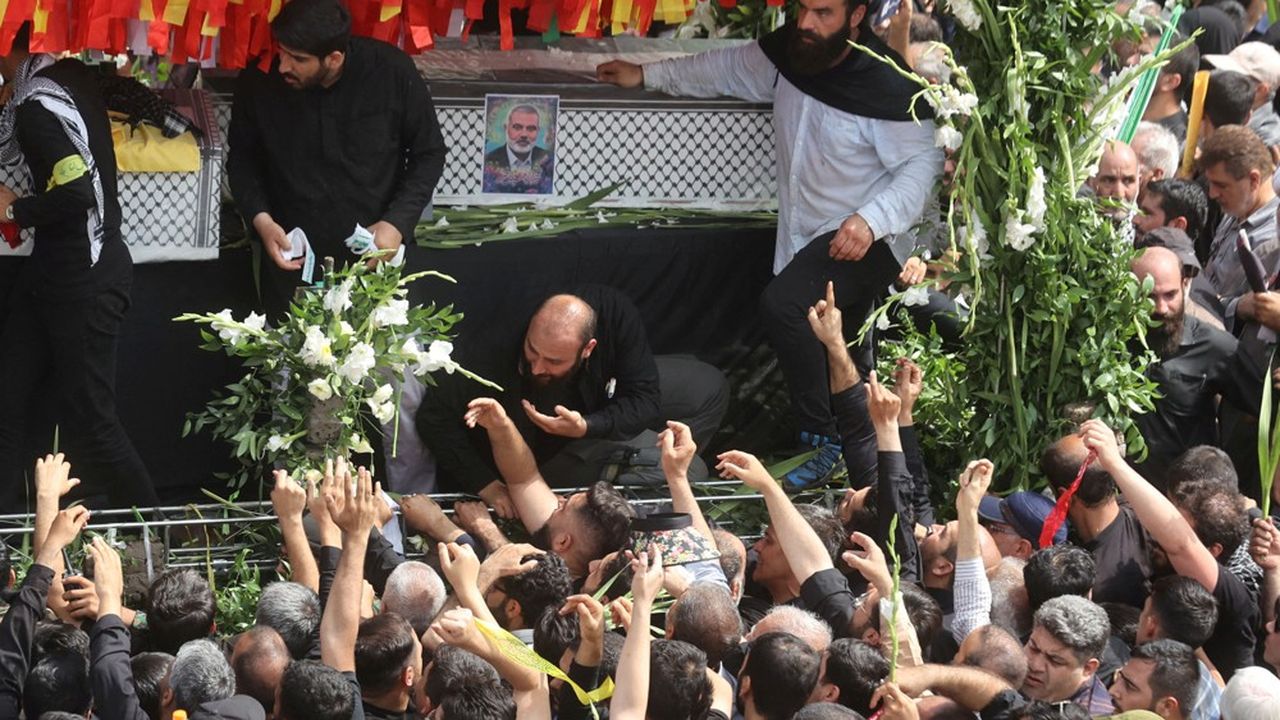
Will Iran’s inevitable and perhaps imminent response to the killing on its soil Wednesday morning of its ally and Hamas leader Ismail Haniyeh fall short of or rise above the threshold likely to trigger a war between Tehran and Israel? In this case, there is a high risk of involvement of other regional actors or the United States and a possible conflagration of the Middle East…
This is the key question asked this morning, as the funeral of Ismail Haniyeh took place in Tehran, with calls for revenge and a speech by Iran’s Supreme Leader, Ayatollah Ali Khamenei. The speaker of the Iranian parliament, Mohammad Bagher Ghalibaf, said the response would take place “at the right place and at the right time.” According to the New York Times, citing three unidentified Iranian officials, Ayatollah Khamenei gave the order to strike Israel directly during an emergency meeting of the Supreme National Security Council on Wednesday evening. According to the same source, the sites targeted would be exclusively military, around Tel Aviv and Haifa.
A meeting was scheduled for Thursday afternoon in Tehran between Iranian leaders and representatives of movements that Iran supports in Lebanon, Iraq and Yemen to discuss a coordinated response.
Washington calls for calm
If the next Iranian response, probably in the same style as the salvo of 370 missiles and drones fired for the first time on April 13 in retaliation for the elimination of two Iranian generals in Syria, were to prove very deadly, it is likely that Israel would feel compelled to respond in kind, with the risk of uncontrollable escalation. However, a war between Israel and Iran would have an air component but probably not a land component, since the two countries have no common border, with Iraq and Saudi Arabia interposing geography. “The Middle East is on the path to increasing conflict, violence, and suffering,” acknowledged US Secretary of State Antony Blinken on Wednesday evening.
In order to avoid antagonizing its regional interlocutors, the White House (which called on its nationals to avoid traveling to Lebanon) conceded that the targeted assassinations in Tehran and Beirut “do not help” to reduce tensions in the region, adding however that it saw “no signs that an escalation is imminent.”
Few official regional mediations
From Turkey to Syria, via Jordan, Egypt, Iraq and Oman, most Middle Eastern countries condemned the elimination of the Hamas leader on Wednesday, but there was no indication on Thursday that their diplomats were engaged in attempts at mediation between Iran and Israel to avoid any slippage. For its part, Brazil, which chairs the G20 and maintains difficult relations with Israel (its president, Lula da Silva, is “persona non grata” in Jerusalem) called for preventing the Middle East from “entering into a conflict of large dimensions and unpredictable consequences” and rejected “the flagrant violation of the sovereignty and territorial integrity of Iran, in clear violation of the principles of the United Nations Charter.”
Hezbollah leader Hassan Nasrallah is scheduled to deliver a speech via videoconference on Thursday afternoon after the funeral of one of his commanders, Fouad Chokr, who was killed Tuesday evening and accused by Israel of being responsible for a strike that killed twelve young Druze on July 27 in the Syrian Golan occupied by Israel.







